Latest news
16 May 2022
Can TU Delft still work with the oil industry?
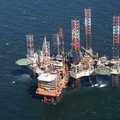
Delft's climate mission no longer makes working with the oil industry a given. Prof. Dr. Giovanni Bertotti (Geoscience and Engineering (GSE)) works at the department with the most collaborations in the oil and gas industry. The shift from fossil to renewable energy is taking place slowly but irreversibly. What does that mean for collaborations?
16 May 2022
A planetary boundary for green water
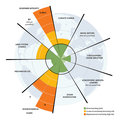
Water is the bloodstream of the biosphere, but we are profoundly changing the water cycle. This is now affecting the health of the entire planet, making it significantly less resilient to shocks. A reassessment of the planetary boundary for freshwater indicates that it has now been transgressed, according to a recent assessment. The paper was performed by an international consortium, led by by Stockholm Resilience Centre, and published on Nature, April 2022.
16 May 2022
Researching climate change in the Spanish heat
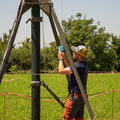
Extreme heat in Canada, flooding in the Netherlands and forest fires everywhere. The climate is changing and the dangers of droughts and floods are lurking. MSc student Gijs Vis didn’t hesitate when he got the opportunity to work on a unique international climate research project in Spain where scientists from multiple European countries joined forces during an intensive fieldwork campaign.
12 May 2022
Creation of the Energy Simulation Centre for GeoEnergy

Energi Simulation, a Calgary-based not-for-profit organization, has committed an investment exceeding $1,000,000 Canadian Dollars over the next three years to support Dr. Hadi Hajibeygi and Professor Sebastian Geiger, from the Department of Geoscience and Engineering at the Delft University of Technology, to grow their geoscience and reservoir engineering research activities in energy transition and support innovative science on the transition to a low-carbon energy future.
20 April 2022
Floating wind turbines change everything
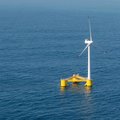
In order to become climate neutral by 2050, the share of renewable energy generated at sea will need to increase significantly. Floating wind turbines, solar panels and tidal power plants will play a crucial role in this.
19 April 2022
Accreditation of new Master's programme in Environmental Engineering

19 April 2022
TU Delft intensifies research into floating wind turbines
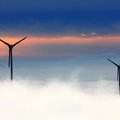
If it is up to the European Commission, all the energy used will come from renewable sources by 2050. Achieving this goal will require the large-scale use of floating wind turbines, says Axelle Viré, wind expert at TU Delft. ‘Although the technology is still in its infancy, it has enormous potential,’ she explains. ‘To capitalise on this potential, TU Delft is launching the Floating Renewables Lab: a lab facility that will tie together all the elements of the development chain for floating wind turbines and other offshore renewables with the help of numerical models and AI.’